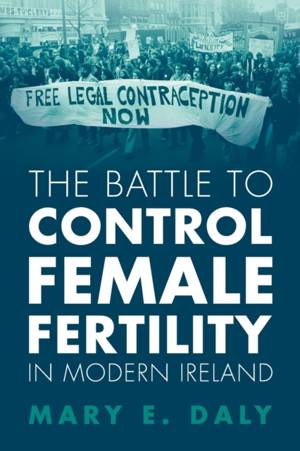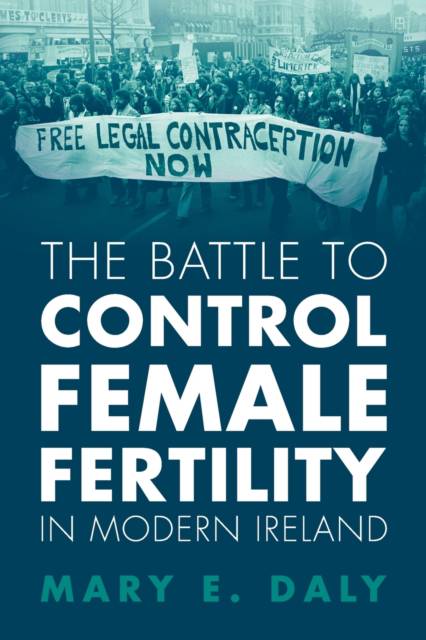
- Afhalen na 1 uur in een winkel met voorraad
- Gratis thuislevering in België vanaf € 30
- Ruim aanbod met 7 miljoen producten
- Afhalen na 1 uur in een winkel met voorraad
- Gratis thuislevering in België vanaf € 30
- Ruim aanbod met 7 miljoen producten
Zoeken
€ 35,45
+ 70 punten
Uitvoering
Omschrijving
The Irish battle for legal contraception was a contest over Irish exceptionalism: the belief that Ireland could resist global trends despite the impact of second-wave feminism, falling fertility, and a growing number of women travelling for abortion. It became so lengthy and so divisive because it challenged key tenets of Irish identity: Catholicism, large families, traditional gender roles, and sexual puritanism. The Catholic Church argued that legalising contraception would destroy this way of life, and many citizens agreed. The Battle to Control Female Fertility in Modern Ireland provides new insights on Irish masculinity and fertility control. It highlights women's activism in both liberal and conservative camps, and the consensus between the Catholic and Protestant churches views on contraception for single people. It also shows how contraception and the Pro-Life Amendment campaign affected policy towards Northern Ireland, and it examines the role of health professionals, showing how hospital governance prevented female sterilisation. It is a story of gender, religion, social change, and failing efforts to reaffirm Irish moral exceptionalism.
Specificaties
Betrokkenen
- Auteur(s):
- Uitgeverij:
Inhoud
- Aantal bladzijden:
- 334
- Taal:
- Engels
Eigenschappen
- Productcode (EAN):
- 9781009314879
- Verschijningsdatum:
- 25/05/2023
- Uitvoering:
- Paperback
- Formaat:
- Trade paperback (VS)
- Afmetingen:
- 152 mm x 229 mm
- Gewicht:
- 467 g

Alleen bij Standaard Boekhandel
+ 70 punten op je klantenkaart van Standaard Boekhandel
Beoordelingen
We publiceren alleen reviews die voldoen aan de voorwaarden voor reviews. Bekijk onze voorwaarden voor reviews.











